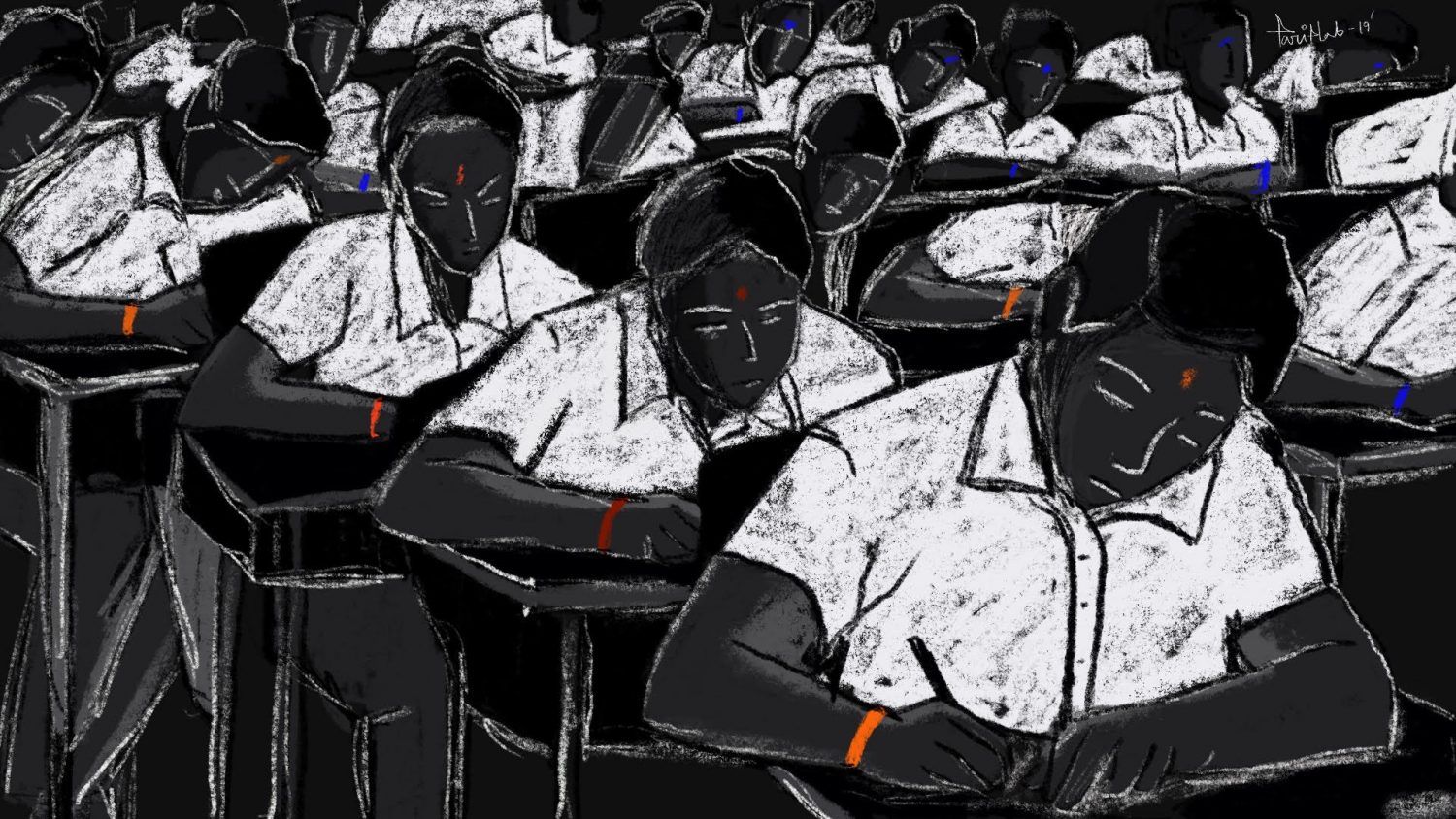On August 2, Tamil Nadu’s director of education S. Kannapan issued a notice asking the officials to take action against institutions allowing school children to wear caste-based wrist bands and tilaks (vermillion) on their foreheads.
These wristbands come in shades of red, yellow, green and saffron and determine whether the student belongs to a ‘lower’ or ‘upper’ caste. The circular came as a result of a representation submitted by a group of officer trainees of the 2018 IAS batch.
The circular said:
These practices, supposedly, are being used for sports team selection, reassembling during class and lunch intervals. Allegedly these practices are enforced by students themselves and supported by influential caste persons teachers.
However, state education minister K.A. Sengottaiyan said that the tradition would continue. “The tradition of students wearing coloured-wrist bands will continue. The circular was not brought to my notice and I was not aware of it,” Sengottaiyan said.
Later, on August 17, the minister backtracked from his statement and said that steps would be taken if complaints were made, while claiming that no such practice exists. He also took a jibe at the media for spreading misinformation.
The News Minute quoted him as saying, “You tell me where they are being work and bring it to our attention. There is no such discrimination going on. I am telling the TV channels and media that education is going on well in the state. Students have undertaken their journey with harmony. Please cooperate with us, without creating cracks in that harmony.”
In the same vein, the general secretary of BJP, H. Raja took to Twitter to condemn the notice: “Arm bands and thilaks are part of our religious sentiments and eradicating this is an Anti-Hindu act” (translated from Tamil).
He also dared officials to ban other religious sentiments as well.
Discriminatory practice
The cover page of all government textbooks in the state reads:
“Discrimination in any form is an offence”.
However, the reality is starkly opposite in several schools with the creation of caste-based divisions in classrooms. Some schools reportedly even discourage students from specific communities from participating in extracurricular activities, sports events and other inter-school competitions.
Also read: ‘He Made Me Hate Myself’: My Story of Being Bullied By a Casteist Teacher
In others, students from lower-caste communities are not allowed to use common plates when mid-day meals are served. Some parents also don’t like their kids being surrounded with children from lower-caste categories.
These kind of problems are rampant in districts such as Dharmapuri, Krishnagiri, Ariyalur, Dindigul and other north-eastern districts of Tamil Nadu.
A lesson to be unlearnt
School is essentially a child’s second home, a place where they are nurtured and groomed to be ready for adulthood.
Whatever children are taught in schools plays an important role in shaping their beliefs and helps determine what they give back to society. Education, as Periyar E. V. Ramasamy said, is the only way to eradicate caste-based and racial discrimination.
Why can’t a minister take a stand to weed out caste-based discrimination in schools?
In a situation like this, it is crucial that parents and teachers take the responsibility to ensure an environment free from caste-based discrimination. The government should also tie up with civil society members to conduct events aiming to create inclusive environment in schools.
These practices, if not discontinued, can be damaging in more ways than one.
Vigneshwaran Shanmugamam is a software Professional working in Bengaluru and is doing his Masters in Journalism and Mass Communication from Bharathiar University, Coimbatore.
Featured image credit: Pariplab Chakarborty

